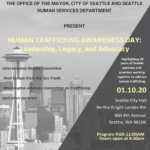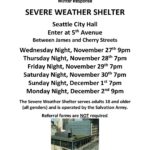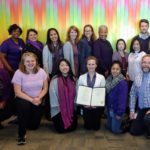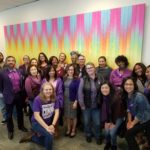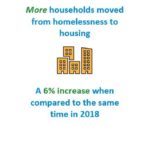Talking About Human Trafficking
Consider what you’ve been told about Human Trafficking. Consider how it has been portrayed in movies, television, or even some awareness campaigns. Have you seen pictures of slender wrists in handcuffs? Have you seen movies about a middle-class, adolescent female vacationing abroad when she is suddenly taken? Consider how rarely you see discussion of the invisible and coercive forces of poverty, psychological control, and isolation. The majority of trafficking situations involve such non-physical restraints, and as we enter the new year, and January’s observance of Human Trafficking Awareness Month, it is time to talk about that. The Seattle Human Services Department’s Mayor’s Office on Domestic Violence and Sexual Assault (MODVSA) is partnering with the Washington Advisory Committee on Trafficking (WashACT) to host a program and panel discussion including survivors, activists, and representatives from our criminal justice response to help expand the conversation around human trafficking in the City of Seattle. This event will be hosted on January 10th from 8:30am-11:00am in the Bertha Knight Landes room in Seattle City Hall.
